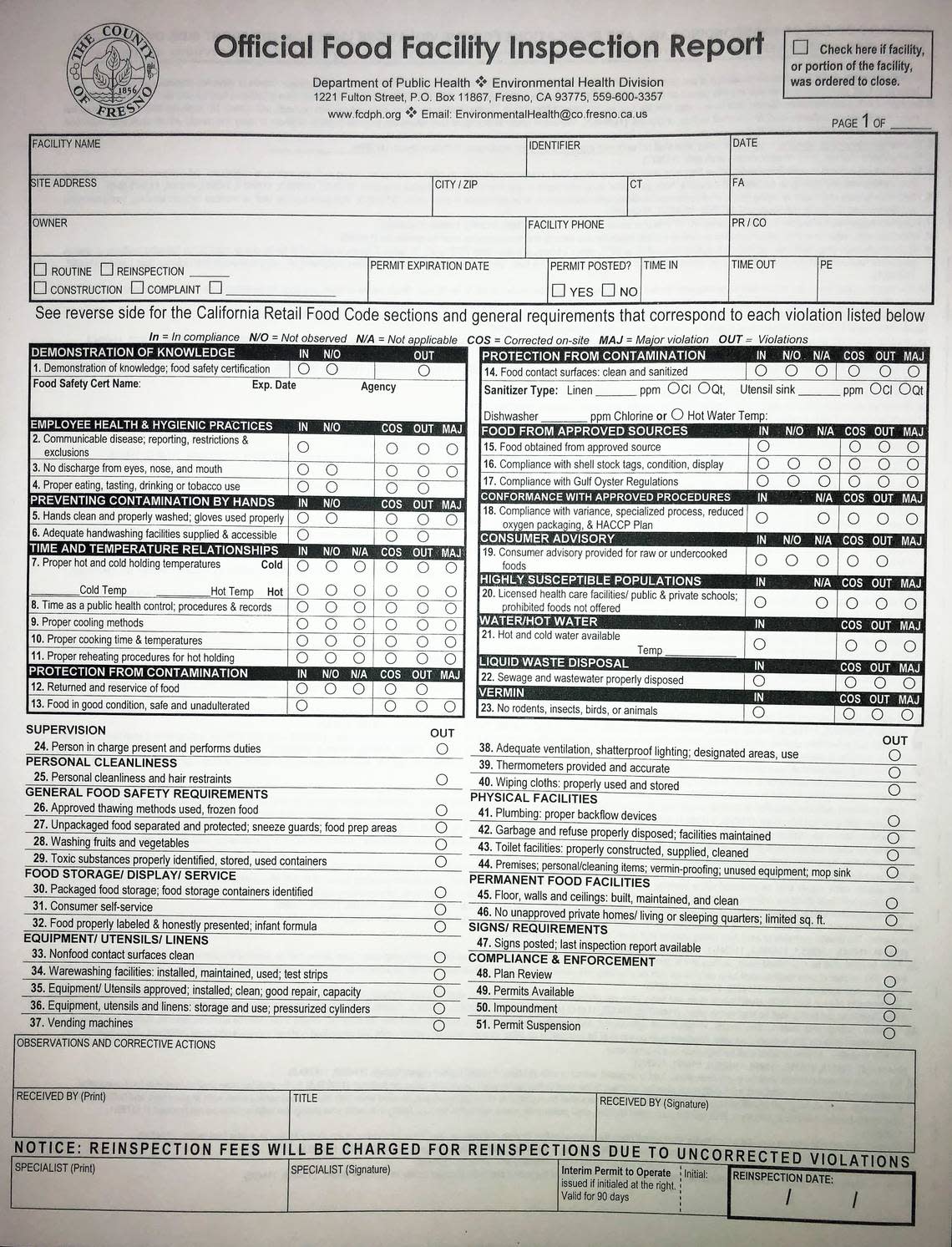Water problems cause closures in latest Fresno County food safety inspections
A lack of hot water at a wine-tasting station and wastewater backing up into a sandwich shop’s dining area were violations for which Fresno County health inspectors ordered two food and drink businesses to close in October until the problems could be fixed.
In the southwestern reaches of Fresno County, at the Subway sandwich store 13382 at 193 W. Polk St. in Coalinga, an Oct. 13 restaurant inspection found wastewater from a floor sink that was surfacing into the shop’s customer area. Inspectors closed the store, but allowed it to reopen the next day after the plumbing issues had been resolved.
The other closure was the result of an Oct. 24 inspection at the Total Wine & More store at 7925 N. Blackstone Ave., in the Villagio Shopping Center in north Fresno. The wine tasting counter was closed after inspectors discovered that there was no hot water as required for food and drink businesses. The rest of the store was allowed to remain open, but health officials reported Monday that the wine-tasting station remains closed.
A lack of hot water is one of the most common violations that inspectors find when they make their routine visits to restaurants and other food and drink establishments throughout Fresno County. Hot water at a temperature of at least 120 degrees is considered important by inspectors for safely washing pots, pans, dishes and glasses as well as for employees to wash their hands.
Inspectors from the county’s environmental health division typically attempt to visit each of more than 5,300 restaurants, snack bars, commissaries, delicatessens, grocery stores and food vendors across Fresno County three to four times a year. That frequency slipped somewhat during the height of the COVID-19 pandemic as many restaurants were closed and county health employees were diverted to other tasks related to the pandemic, but inspections are increasingly back on track now.
When inspectors visit a restaurant or other food service business, there is a lengthy and detailed list of more than 50 things that draw their scrutiny. They include:
Whether the manager and all employees have the required food safety or food-handling certificates.
Hygiene of individual employees.
Ways to keep cold food at or below 41 degrees and hot food above 135 degrees.
Use of proper sterilization for counters, tables, utensils and cookware.
Overall cleanliness.
Proper drainage of sinks and floor drains.
Keeping restrooms stocked with supplies; and whether the business has the proper license or permit.

If inspectors find a problem, it’s often something that can be fixed on the spot – issues like having enough bleach or sanitizer in the water used to wipe down food-preparation areas, putting lids back on containers in walk-in refrigerators, replenishing soap, paper towels and toilet paper in the restrooms, or reminding employees to wash their hands and wear gloves and hairnets.
But occasionally, more serious violations pop up that create a need to shut down a place on the spot, sometimes for a few hours or a day or two, sometimes longer.
Those immediate concerns include infestations of rodents, cockroaches and other insects; refrigerators that don’t keep food cold enough or steam tables that don’t keep food hot enough to inhibit bacterial growth; or, in the case of October’s closures, plumbing problems such as no hot water or backed-up drains or sinks.
